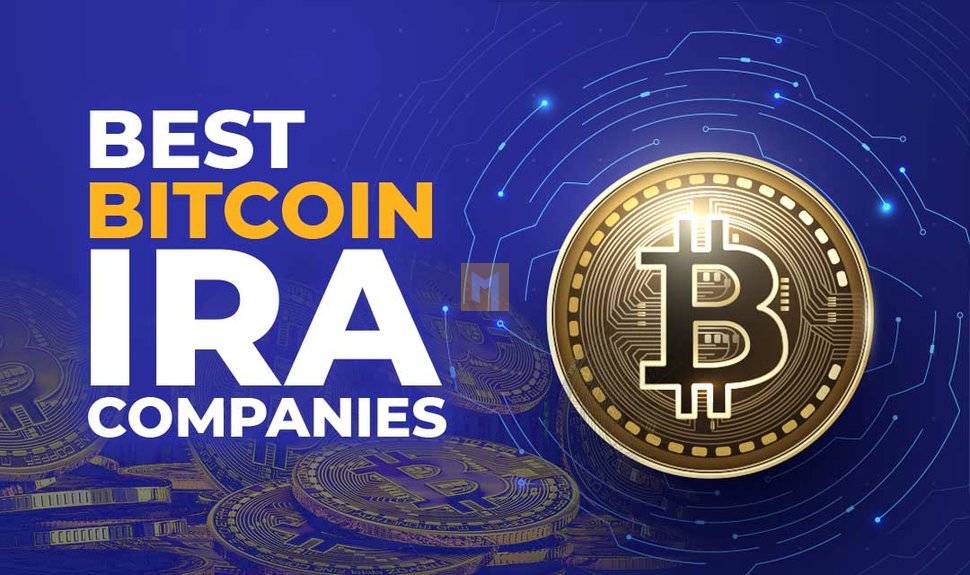Crypto
Can You Hold Crypto in Your Roth IRA?

Can You Hold Crypto in Your Roth IRA?
A Roth Individual Retirement Account (IRA) has long been known as a tax-effective way to save for retirement. Some Roth IRA providers have begun offering cryptocurrency as a qualifying asset in these accounts. This opens up opportunities for cryptocurrency investors to take advantage of the tax benefits associated with Roth IRAs. Crypto Roth IRAs are still a relatively new development and many of their specifics are shrouded in mystery. In this article, we take a closer look at this new generation of Roth IRAs.
What is a Roth IRA?
A Roth IRA is a special retirement account approved by the United States Internal Revenue Service (IRS) that offers substantial tax benefits. You can open a Roth IRA account with a qualified provider and contribute after-tax to save for retirement. Your Roth IRA contributions and income grow tax-free under the account. All contributions to a Roth IRA must be made in cash.
While your contributions aren’t tax-deductible, you can withdraw money completely tax-free from a Roth IRA at age 59½ as long as you’ve had the account for at least five years. You can also withdraw tax-free at any time without meeting the age and account management requirements, but in this case your income will be taxed.
Key points about Roth IRA and taxes
A Roth IRA is a great tax-free way to save for retirement and enjoy tax-free income at age 59½. The IRS has set a limit on annual contributions to a Roth IRA. As of 2023, the annual contribution limit is $6,500 for those under age 50 and $7,500 for those over 50. Roth IRAs are also subject to income limits. Starting in 2023, you can contribute to a Roth IRA if:
- you are an individual taxpayer with an Adjusted Gross Income (MAGI) of less than $153,000, or
- you are married, file with your spouse, and your joint MAGI is less than $228,000.
A Roth IRA is a relatively flexible retirement account: there is no minimum withdrawal requirement (RMD) and the account can be held forever. A Roth IRA can hold a wide variety of assets and financial instruments, including stocks, bonds, exchange-traded funds (ETFs), mutual funds, and more.
Can you hold crypto in a Roth IRA?
The IRS considers cryptocurrency a form of property for tax purposes. As a legal asset, crypto can be held in a Roth IRA. However, you cannot directly contribute cryptocurrency to your Roth IRA. The donation must always be in cash. At the same time, nothing theoretically prevents you from buying cryptocurrencies in your Roth IRA.
In reality, most traditional Roth IRA providers do not offer cryptocurrencies as a qualifying investment in the accounts they offer. Here’s how Roth IRAs generally work: You’re limited to the asset classes offered by the account provider.
However, a new generation of Roth IRA providers that specialize in cryptocurrencies has emerged in recent years. These crypto IRA companies offer Bitcoin IRAs and other crypto IRAs. Some prominent providers in this niche include iTrustCapital, Bitcoin IRA, BitIRA and Equity Trust.
Investments
In general, the combination of different assets is very common in Roth IRAs. However, the practical difficulty of combining alternative assets such as cryptocurrencies and traditional investments under a single Roth IRA can limit your choices. While the crypto IRA niche market is growing, it is still very small. Only a handful of Bitcoin IRA companies and other IRA crypto providers have established themselves in the market. Additionally, some of these providers offer Roth IRAs that are limited to cryptocurrency only.
The good news is that you may still find some crypto IRA providers offering a mix of traditional and crypto assets. For example, iTrustCapital offers cryptocurrencies and two precious metals – gold and silver – as eligible assets for its Roth IRA product. Using iTrustCapital’s Roth IRA, you can gain exposure to cryptocurrencies, a volatile but fast-growing asset, as well as precious metals, which have long been considered low-risk investments. Additionally, iTrustCapital offers investments in nearly 30 different cryptocurrencies, including all major ones, in its Roth IRA product.
Roth IRA pros and cons
There are several advantages and disadvantages to owning a Roth IRA over regular retirement accounts. Let’s take a closer look at the pros and cons of this type of retirement account.
Benefits of a Roth IRA
Tax-exempt income above 59½. The most obvious benefit of a Roth IRA is the ability to receive tax-free income at age 59½.
Free payments for 59½. A Roth IRA is a flexible retirement account. You can withdraw the premiums, but not the earnings, tax-free before the age of 59 and a half.
No Minimum Required Deployments (RMD) are required. Most standard retirement accounts, including the most widely used account, the 401(k), require you to begin withdrawing minimum required distributions (RMDs) from your account after you reach a certain age. A Roth IRA has no such requirement.
Portfolio diversification for Roth IRA cryptocurrencies. You can diversify your overall retirement portfolio by investing some of your money in a Roth IRA cryptocurrency. This will help you gain exposure to a high risk/high reward asset, i.e. cryptocurrency. This benefit of Roth IRA cryptocurrencies is important to many, if not most, retirees and early retirees.
Retirement portfolios consisting only of traditional assets (such as stocks and bonds) create an overreliance on these asset classes. While it makes sense to invest most of your money in low-risk assets, the lack of high-growth alternative assets such as cryptocurrencies limits the income potential of these accounts.
Disadvantages of a Roth IRA
Payments are not tax deductible. While a Roth IRA is great for tax-free income in retirement, your contributions to this type of account aren’t tax deductible.
Income received before the age of 59 and a half or before the age of 5 is taxable. You will be taxed if you withdraw income from a Roth IRA before you meet the minimum age and account eligibility requirements.
- Income limits. Individuals with annual incomes greater than $153,000 or $228,000 when filed with a spouse are not eligible for a Roth IRA.
- Low annual payment limits. The annual contribution limit of $6,500 ($7,500 if you’re over 50) for all Roth IRAs is relatively low, reducing the usefulness of these accounts as a tax-advantaged vehicle.


















